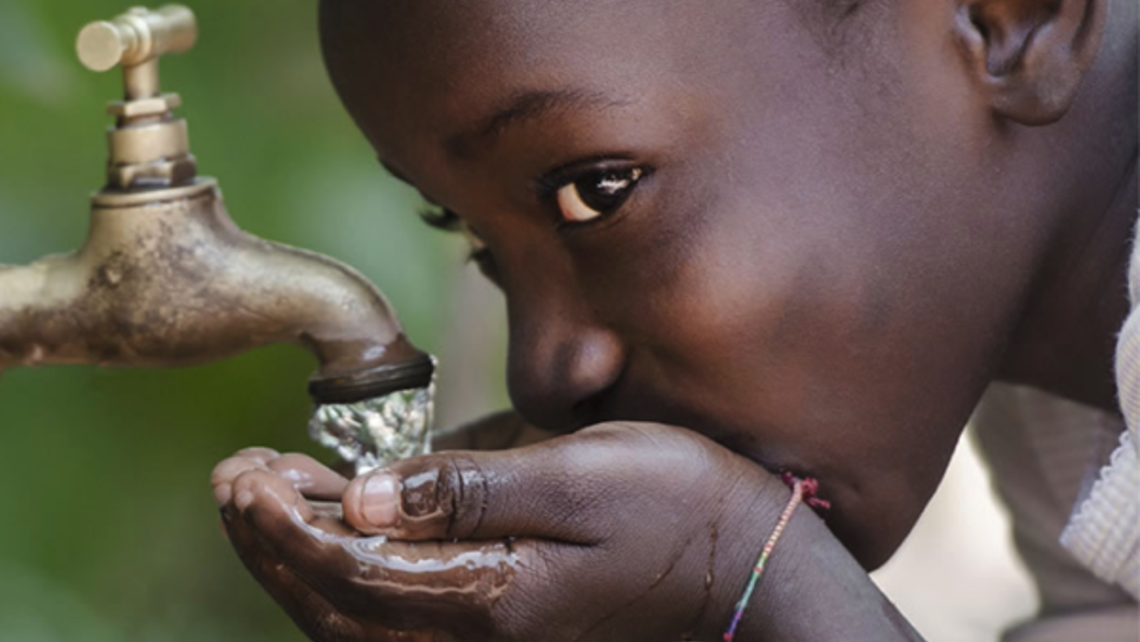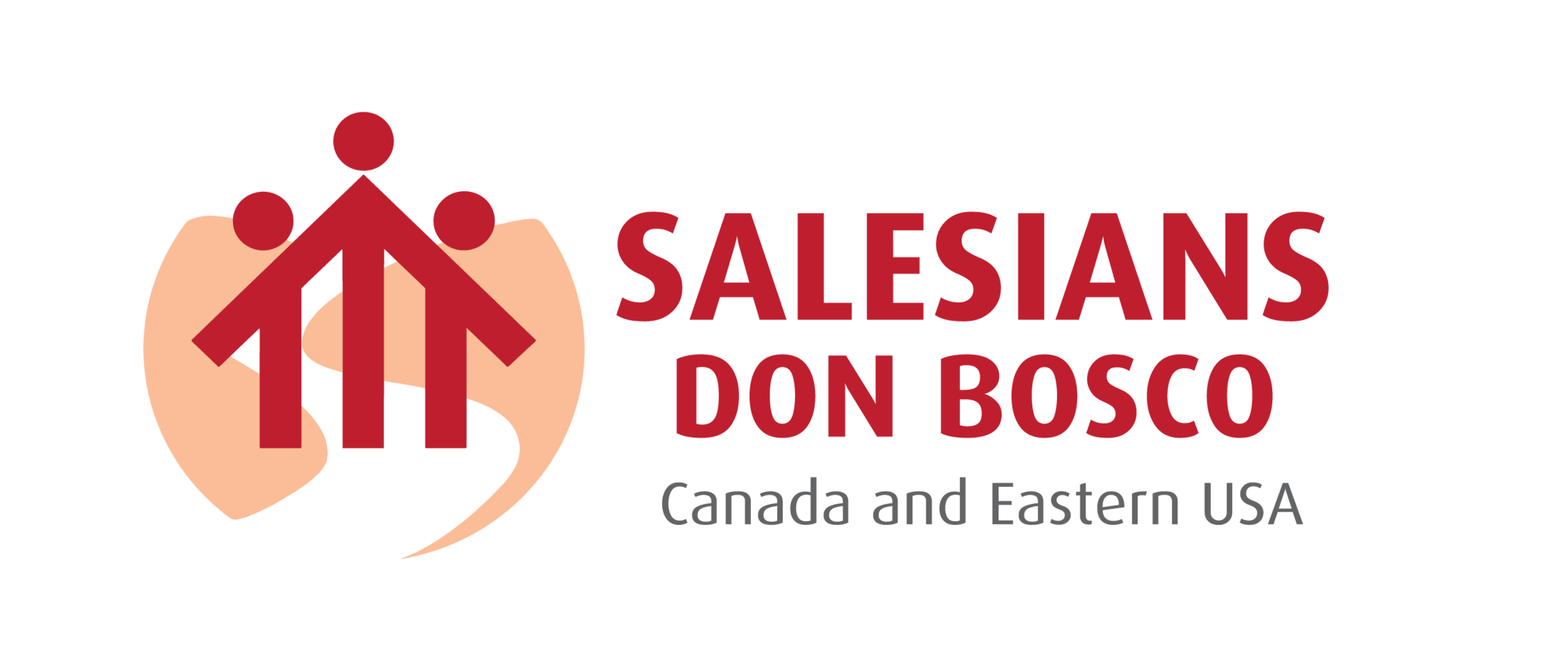
By Fr. Tom Brennan, SDB
Since 1993, March 22 has been designated as World Water Day. This commemoration focuses our attention on the importance of water in our lives and raises awareness concerning the 2.2 billion people who live without access to safe water. Since 2015, an essential aspect of the observance is to encourage governments to work at achieving Sustainable Development Goal (SDG) 6: water and sanitation for all by 2030. To reach this goal, all members of society need to take concrete actions to help preserve our precious resource of water and work to ensure that proper sanitation is possible throughout the world.
On March 18, 2021, the UN will host an online High-Level meeting to call governments and key stakeholders to take action on the implementation of the water-related goals and targets of the 2030 Agenda. Learn more about the High-Level meeting on the implementation of the water-related goals and targets of the 2030 Agenda.
Linked to World Water Day is World Toilet Day, observed each year on November 19. This observance focuses attention on the global sanitation crisis, something that is not often considered, and which can often generate more snickers than actions to solve the problem. However, there are 4.2 billion people in the world who are struggling to stay healthy, keep their children alive, and work their way to a better future who are in desperate need of assistance in solving sanitation problems. Open defecation, a common practice in many places, contaminates the water that is needed for drinking, cooking, and washing. Presently, 2.2 billion people only have access to a drinking water source that is contaminated with feces. This puts them at risk of contracting cholera, dysentery, typhoid, and polio.
Theme
This year’s theme for World Water Day is Valuing Water. The observance is about what water means to everyday people, its value in their lives, and their thoughts about how to better protect this vital resource. Some see the value of water only as a commodity for sale. However, water has an enormous and complex value for nearly every aspect of our life together. Those who study and advocate for water justice have made explicit the areas of our lives that are affected by water policies. This includes links between water and: climate change; disasters; ecosystems; economics; gender; human rights; education; culture; water quality and wastewater; scarcity; transboundary water; urbanization; food and energy; sanitation and hygiene. A comprehensive understanding of water’s multidimensional importance and value is required if we are going to safeguard this essential resource for our own use and preserve it for future generations.
Questions to respond to on Valuing Water
Organizers of World Water Day 2021 have suggested a number of questions that could be used to help raise awareness in the communities and constituencies that choose to participate in the observance. What does water mean to you? Why is water important to you? How does water affect females and males differently? What role does water play in your future? What role does water play in your home, workplace, or school? How does water play a part in your cultural practices? What would you change about water in your area? What do you use the most water for? How does water affect the food you eat? The ideas and suggestions gathered from around the world will become part of a report that will summarize the thinking of the world community about the true value of water.
Resources for World Water Day
Posters, social media, toolkit, visuals, thematic logos, animated assets, participation certificates are available at https://www.worldwaterday.org/share.
The human right to water
On July 28, 2010, through Resolution 64/292, the United Nations General Assembly explicitly recognized the human right to water and sanitation and acknowledged that clean drinking water and sanitation are essential to the realization of all human rights.
In spite of this resolution, water became increasingly commodified and controlled by large corporations and governments. Access to water became weaponized in some places with the flow of water across borders reduced to a trickle. Developers, seeking ever greater profits have frequently polluted the rivers, lakes, and even groundwater of formerly pristine areas. Even citizens in some cities in the USA have found themselves no longer able to access clean, healthy water. Flint, MI is still suffering from the criminal policies that were enacted to deny them clean water. Fracking has polluted and depleted groundwater in many areas of the USA, most of them in rural and impoverished areas.
In 2015, the topic of the human right to water came to the fore once again as the General Assembly of the UN was finalizing its multi-year process of agreeing to the Sustainable Development Goals (SDGs). While Goal 6 deals with clean water and sanitation for all, there was no restatement of the human right to water. Many of the faith-based NGOs fought long and hard to have this included in the 2030 Agenda. The persistent hard work of the Ambassador of Palau, H.E. Ambassador Dr. Caleb Otto, in collaboration with many faith-based organizations, was instrumental in having the human right to water was included in the preamble of the SDGs.
During the time that the governments were debating the Sustainable Development Goals, Pope Francis was preparing his encyclical on care for our common home, Laudato Si. The encyclical was promulgated shortly before the debates on the Sustainable Development Goals concluded. Many governments found this encyclical a clear and concise articulation of many of the concerns that they were addressing in the SDGs. Pope Francis, on behalf of people of goodwill, stated that access to clean water is crucial to realizing the most basic human rights.
30 Even as the quality of available water is constantly diminishing, in some places there is a growing tendency, despite its scarcity, to privatize this resource, turning it into a commodity subject to the laws of the market. Yet access to safe drinkable water is a basic and universal human right, since it is essential to human survival and, as such, is a condition for the exercise of other human rights.
Our world has a grave social debt towards the poor who lack access to drinking water, because they are denied the right to a life consistent with their inalienable dignity. This debt can be paid partly by an increase in funding to provide clean water and sanitary services among the poor. But water continues to be wasted, not only in the developed world, but also in developing countries which possess it in abundance. This shows that the problem of water is partly an educational and cultural issue, since there is little awareness of the seriousness of such behavior within a context of great inequality. (Laudato Si, paragraph 30) (emphasis added)
United Nations World Water Development Report (UN WWDR)
Each year, the United Nations produces a thematic report that deals with strategic water issues to assist decision-makers with a series of tools to formulate policies that provide for sustainable use of our water resources. The report addresses regional concerns, hotspots that need to be rectified, and testimonies from the field to make the information accessible to a broad range of readers. Concerned citizens, water justice activists, and governmental policy-makers can all benefit from studying the reports.
UN-Water, a coordinated group of UN agencies and entities, partners with governments, international organizations, non-governmental organizations, and other stakeholders to produce the UN WWDR.
UN WWDR reports are available at https://www.unwater.org/publication_categories/world-water-development-report/.
Hand Washing/Hand Hygiene during a time of pandemic
As has been well documented, hand hygiene saves lives. Washing one’s hands regularly throughout the day with soap and water can contain the spread of infectious diseases including COVID-19. While this practice can be observed in countries with easy access to clean water, too many people do not have clean water and soap to wash their hands. Additionally, in some places, people need to be instructed in the proper method to wash their hands using both soap and water.
This inability to provide good hygiene, compounded by poor sanitation and unsafe drinking water is directly linked to the death of nearly 525,000 children under the age of five due to diarrhoeal disease, something that is preventable and treatable. For a good number of the 1.7 billion children who contract a diarrhoeal disease, they have the added health challenge of dealing with malnutrition.
The World Bank has found that the promotion of good hygiene practices is the most cost-effective health intervention a country can do. Additional research by health advocates has found that universal access to safe drinking water and adequate sanitation and hygiene can reduce the incidence of global disease by 10%.
A useful global factsheet on hygiene baselines pre-COVID-19 is available at www.washdata.org.
UNICEF has many resources on the link between school and water, hygiene and sanitation, which are available at https://www.unicef.org/coronavirus/covid-19.
A Salesian response to COVID-19, including efforts to provide clean water and improve hygiene and sanitation throughout the world, especially in areas often neglected, has recently been summarized in book form. Information about the contents of the book and how to purchase it is available at https://www.aglpdo.org/2021/02/01/rector-major-officiates-the-release-of-book-that-doccuments-the-salesian-response-to-covid-19/.
Global Handwashing Day
Realizing the essential role of handwashing in guaranteeing health and prosperity, the world community initiated Global Handwashing day in 2008. Held each year on October 15, the day focuses the world’s attention on this basic, but often neglected, activity stressing its importance in guaranteeing a healthy, stable, and prosperous world. In this era of globalization and extensive travel, ensuring that disease and infection are not spread widely, hand washing is an important element in a prevention strategy.
The theme for the observance of the day in 2021 is the link between handwashing and food hygiene and nutrition. Handwashing is an important part of keeping food safe, preventing diseases, and helping children grow strong. The organizers of this year’s events remind us that “Clean hands are a recipe for health.” They stress that handwashing must be a part of every meal.
Care for our common home
Pope Francis reminded all people of goodwill that we all have a responsibility to do all we can to preserve and protect our shared common home and its resources. The common good demands that we collaborate across the divide and distance between countries and cultures. Clean water is essential to the well-being of us all. This World Water Day asks us to see the value of water and its inseparable role in guaranteeing the well-being of all. Let’s try to spend some time reflecting on our own use of water and commit ourselves to work to ensure that there is equal access to safe, clean water for all.






